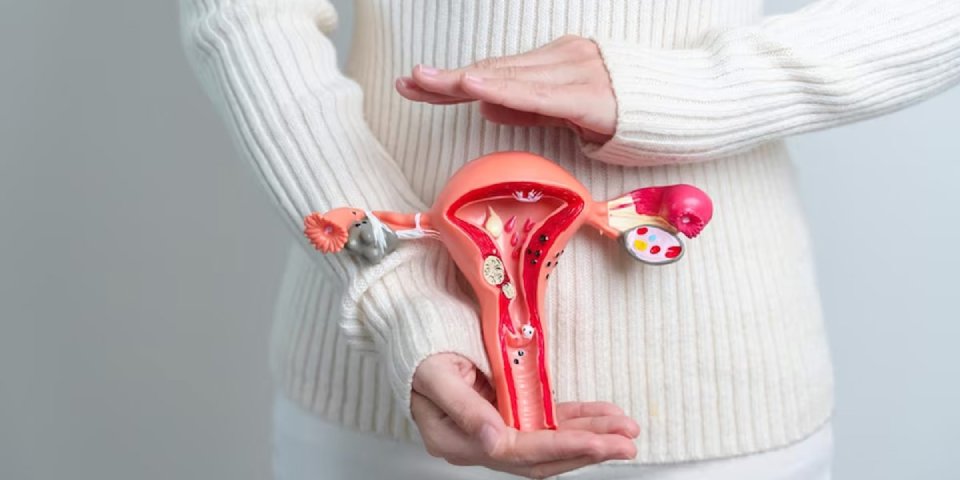- +91 92268 22020 / +91 95605 06620

Abnormal uterine bleeding (AUB) is a common health issue that affects many women, causing bleeding outside of the normal menstrual cycle or heavier periods than usual. In Pune, especially in areas like Wakad and Baner, more women are seeking expert help from AUB to improve their quality of life. Common causes include hormonal imbalance, fibroids, polyps, thyroid problems, and sometimes even stress or infections. If you notice frequent or heavy bleeding, it is important to consult the best gynecologist in Baner like Dr. Asmita Dongare. Timely diagnosis and appropriate treatment can help control signs and prevent complications. Here, we’ll discuss AUB—what it is, its symptoms, treatment options, and more.
Abnormal Uterine Bleeding refers to any unexpected bleeding pattern outside the normal menstrual cycle. While occasional variations in menstrual flow are common, persistent or heavy bleeding should never be ignored. To understand what makes bleeding “abnormal,” it helps to know what’s considered normal. A typical menstrual cycle lasts around 28 days (though 21-35 days is within the normal range), with bleeding usually lasting about 3 to 7 days. Any significant deviation from your regular pattern that persists for months may indicate AUB.
Women experiencing AUB may notice several distinct symptoms that differ from their usual menstrual patterns. Heavy periods (menorrhagia) are the leading symptom, seen in about 58.45% of AUB cases in India. Other symptoms include:
If you notice these symptoms, consulting with a gynecologist in Pune like Dr. Asmita Dongare, who has over 15 years of knowledge in treating complex gynecological cases, is highly recommended.
Hormone level changes, especially in estrogen and progesterone, can affect the regular menstrual cycle. Conditions that may cause hormonal imbalances include:
Studies in India show that ovulatory disorders account for approximately 20% of AUB cases, making them one of the more common causes, especially in younger women.
Non-cancerous growths in the reproductive system can cause abnormal bleeding patterns:
Various conditions can also cause abnormal uterine bleeding:
If you experience any persistent abnormal bleeding pattern, it’s important to consult with a gynecologist promptly. You should seek immediate medical attention if you experience extremely heavy bleeding (soaking through pads/tampons every hour) or bleeding during pregnancy.
Dr. Asmita Dongare top gynecologists in Pune typically follow a comprehensive diagnostic approach:
Medical History and Physical Examination:
A detailed history of your menstrual cycle changes is the first and most important step in understanding the root cause. Our doctor will ask about:
Laboratory Tests:
Blood tests may be recommended to check:
Imaging Tests:
Tissue Sampling:
The treatment procedure for AUB depends on the underlying reason, your age, general health, and whether you desire to preserve fertility. In Pune, particularly in areas like Wakad and Baner, several treatment options are available:
The foremost line of therapy often involves healthy lifestyle modifications. Many women respond positively to:
These adjustments are beneficial for AUB related to hormonal imbalances.
1. Hormonal Treatments:
2. Non-Hormonal Medications:
1. Uterine Fibroid Embolization (UFE):
This is a highly effective treatment for uterine fibroids available in Pune. The procedure involves injecting tiny particles into blood vessels supplying the fibroids, cutting off their blood supply and causing them to shrink. UFE offers several advantages, including shorter recovery times, less pain, and preservation of the uterus for women wishing to maintain fertility.
2. Endometrial Ablation:
This procedure destroys the uterine lining, significantly reducing or stopping menstrual flow. It’s suitable for women who have completed their family.
3. Hysteroscopic Procedures:
Performed through a hysteroscope (a thin device inserted through the cervix), these procedures can remove polyps and small fibroids without major surgery.
For cases that don’t respond to less invasive treatments, surgical options may be considered:
1. Myomectomy:
Myomectomy is a surgery to remove fibroids while keeping the uterus intact. It helps preserve fertility and can be done through hysteroscopic, laparoscopic, or abdominal methods.
2. Hysterectomy:
The complete removal of the uterus is often considered when other treatments have failed or in certain specific situations. In a study from Silchar Medical College, hysterectomy was the most common treatment performed for AUB (47% of cases). While effective, it’s usually considered as a last resort as it permanently ends fertility.
If you’re looking for specialized therapy for abnormal uterine bleeding in Pune, Dr. Asmita Dongare offers expert care at Cloverleaf Specialty Clinic in Wakad. With more than 15 years of experience handling complex gynecological cases, Dr. Asmita Dongare provides comprehensive care for all types of abnormal uterine bleeding.
Her services include:
Dr. Asmita Dongare’s expertise extends to various specialized procedures, including medical abortion, uterus removal, infertility treatment, and management of high-risk pregnancies. Her qualifications include an MBBS from Grant Medical College, Mumbai, a diplomat qualification from YCMC Hospital Pimpri, and an MRCOG from London.
When visiting a gynecologist for AUB in Pune, you can expect:
While not all causes of AUB can be prevented, certain lifestyle choices may help reduce your risk:
Regular visits to a gynecologist, especially if you notice any changes in your menstrual pattern, can help with the early detection and management of conditions that might cause AUB.
Abnormal Uterine Bleeding is a common condition that affects many women in India. While it can be concerning and disruptive to daily life, effective treatment options are available, especially in Pune where several skilled gynecologists practice. Understanding the causes and symptoms of AUB is the first step toward finding relief.
If you’re experiencing abnormal bleeding patterns, don’t hesitate to consult with a specialist like Dr. Asmita Dongare experienced gynecologists in the Wakad, Baner, Hinjewadi, or Ravet areas of Pune. With proper diagnosis and treatment, most women can find significant improvement in their symptoms and quality of life.
Remember that early diagnosis and proper management prevent complications. Dr. Asmita Dongare gynecologist in Pune can help you navigate the various treatment options to find the approach that works best for your specific situation, health goals, and lifestyle needs.
WhatsApp us